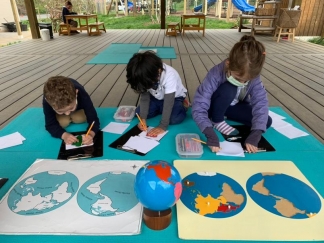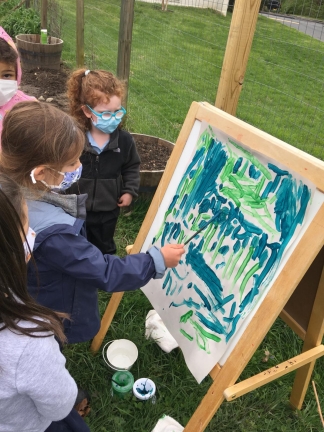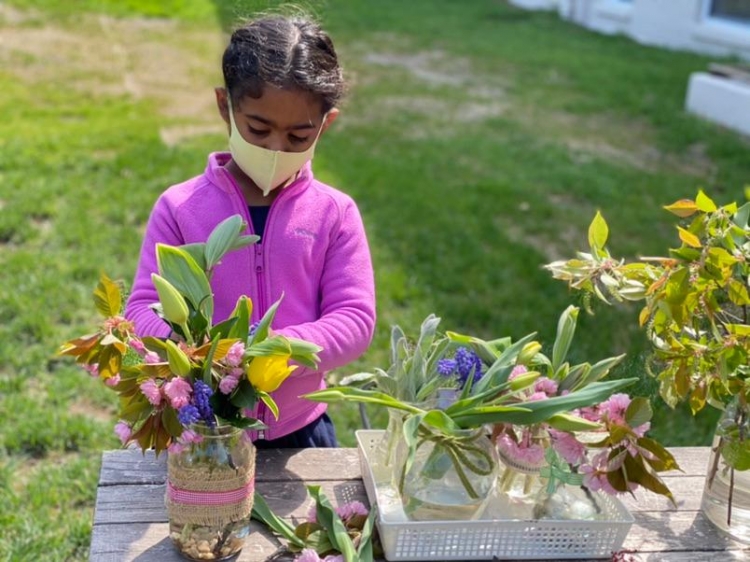The year 2020 was marked by unusual challenges. All around the globe, people were forced to quickly adapt to a new reality and change their daily routines. While acknowledging the grave consequences of the pandemic, we would also like to highlight the resilience communities have shown, and the innovative solutions they have found to the challenges. We are happy to share the inspirational story of Crossway Montessori Forest School, who showed great resilience and turned the challenges caused by the COVID-19 pandemic into an opportunity.
After the pandemic hit, we started with virtual learning, and quickly determined that children were missing the social-emotional development they receive from in-person learning. Our CEO, Kathleen Guinan, sat outside for a couple of weeks to reimagine how we could take our school outside. As a Montessori School, our focus has always been on what’s best for children. The American Academy of Pediatrics urged in-person learning and scientists and pediatricians agreed that we would be safer outside.

We reviewed Maria Montessori’s literature, specifically her 1944 lecture at Kodaikanal, where she describes her vision for outdoor environments with gardens and exercise during all weather. We also drew inspiration from Norwegian Forest schools and our connection to Association Montessori International. Crossway hired landscape architects Fritz & Gignoux, who shared Kathleen’s vision, and redesigned our campus. As our team of Montessori guides evolved the curriculum, Fritz & Gignoux reworked the outdoor spaces. Together, we transformed our school into an outdoor Montessori Forest School offering a variety of inspiring activity spaces, like gardens, woodland, forest and barns without walls.
Our children learn the same things children learn in a traditional Montessori curriculum including practical life skills, grace and courtesy, reading, math, geography, science, art and music, with the added benefits of applied environmental learning, gardening, caring for living things, risk taking, and being physically active all day. After spending almost an entire year learning outside, it would be impossible to spend days inside again. The natural environment is full of rich lessons and with appropriate clothing our community thrives in all weather.
We have found that our nature-based outdoor school:
- Instills the love of learning – children receive a child-led education in mixed age groups while being free to roam, play, work, eat and even sleep outside in the fresh air;
- Builds confidence, critical thinking and independence;
- Helps children develop healthy executive functions and self-regulation during the time when their brains develop the most;
- Reduces stress, improves mental health, and reduces symptoms of hyperactivity;
- Helps prevent obesity since children are active all day and exposed to healthy foods from our gardens like kale and bok choy;
- Helps prevent the classic health issues children are exposed to at pre-schools, like runny noses, diarrhea or pink eye;
- Connects children to the natural world so they become environmental stewards and part of the climate change solution;
- And, promotes social and emotional development, which is where we began with this experiment.

During our daily walks, children pick up sticks. Rather than being fearful that they will poke someone’s eye out, they learn to use them responsibly. They use the sticks to measure things and organize them according to length – learning the concept of length. They use them to build huts for bugs and shelters for themselves where they go to read a book. We have been fortunate to be a part of Educateurs sans Frontières and witness what outdoor Montessori schools achieve around the world and we hope that through our example here in the United States, we can be part of the reinvention of education.

